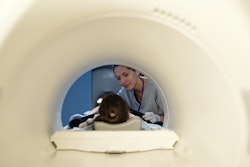Dear AuntMinnieEurope Member,
Support continues to grow for thermal ablation as an effective way of treating cancer. Research now suggests that ablation can lead to a better safety profile, lower costs, and shorter hospital stays, while also being on par with surgical resection in terms of local control and overall survival.
In a new study, a team from Amsterdam explored the pros and cons of thermal ablation compared with surgical resection for patients with small-size resectable colorectal liver metastases.
Danish researchers have also kept busy this week. A group from Copenhagen has published the results of an important investigation into the impact of AI on breast radiology's workload and recall rates.
The U.K. Imaging & Oncology (UKIO) congress begins in Liverpool on Monday. Ahead of the event, we look at the remarkable life of Dr. Florence Stoney, a formidable feminist with a strong faith in women's capacity to fill top positions. Her contributions to radiology will be celebrated in a special history session at next week's meeting.
Back to the present day, a recent survey suggests that the imaging community may be depending too much on whole-body CT in pediatric emergencies. A total of 60% of patients seen over four years at a major trauma center received a full-body scan.
Another hot topic right now is green radiology and sustainability, so it's a serious global concern that the volume of gadolinium pollution from MRI contrast agents appears to be rising sharply. Don't miss our report on some striking analysis from Japan.
Philip Ward
Editor in Chief
AuntMinnieEurope.com




















